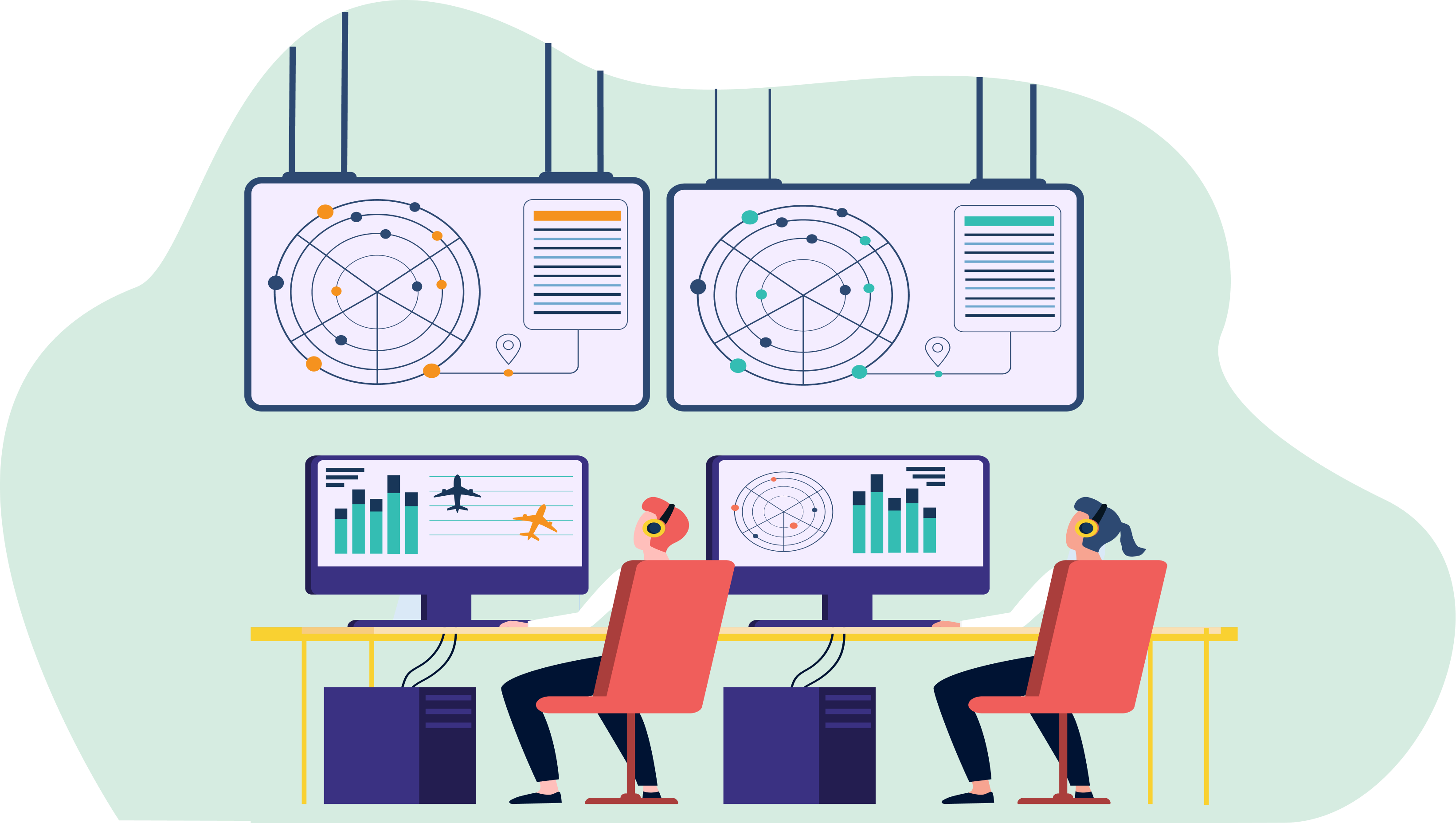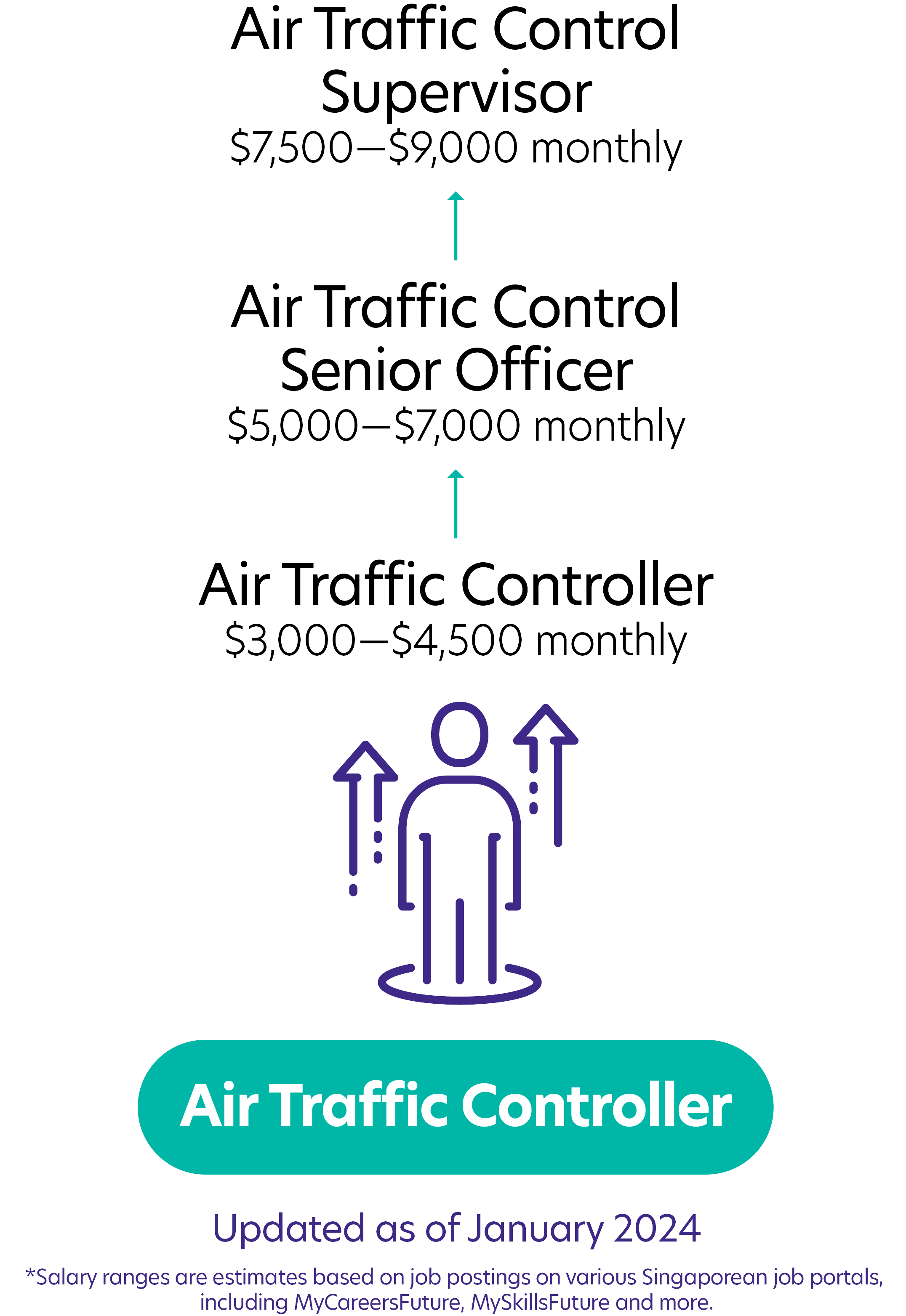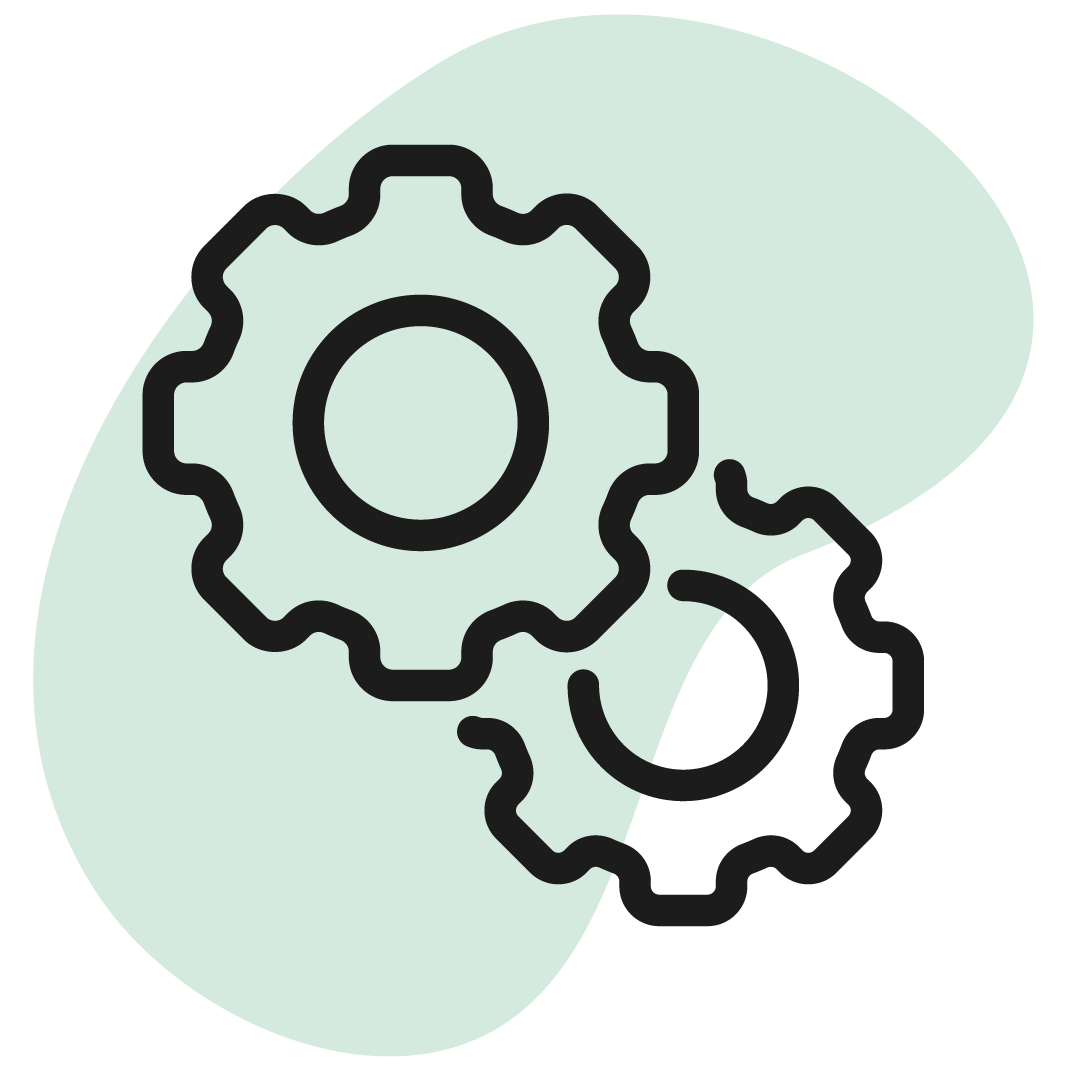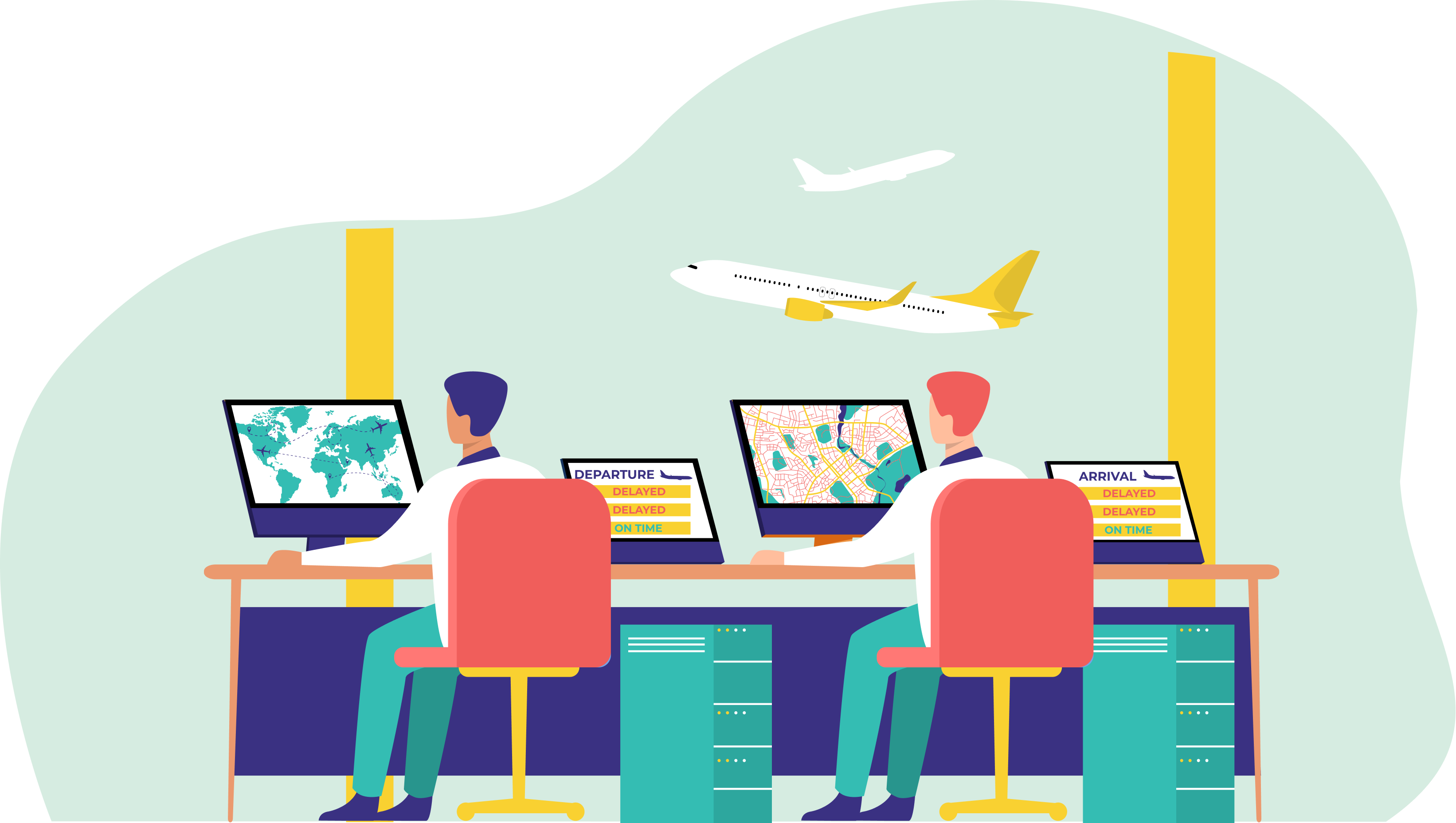
Air Traffic Controllers handle the safety of flight control operations through analyses of flight data, flight control systems and procedures and resolving issues in real-time flight control operations.
Air Traffic Controller Job Description
- Analyse flight data to ensure efficient performance and the seamless management of aircraft movements.
- Collaborate with Pilots, Airport Management, and Emergency Services to develop contingency plans.
- Propose necessary system changes and technological upgrades to maintain flight control operations.
- Review flight documents and reports with a critical eye to ensure validity and accuracy of information.
- Communicate with Pilots and provide directions during take-off, landing, and mid-flight operations.
Note
Voice clarity is important when relaying messages, Air Traffic Controllers must pass a voice test before they can get the job.
What you should know about Air Traffic Controller jobs in Singapore
Nature of Work
Despite working under immense pressure, you must still be composed when reacting to critical situations.Key Advice
You need to be able to work under pressure and be calm, as you would need to respond decisively to constantly changing situations.-
Entry RequirementsEntry Requirements
- Minimally, you would require a diploma, preferably in Aviation-related disciplines, Engineering, Science, or Mathematics.
- Since English is the international language of Aviation, a high level of proficiency in English (both written and spoken) is essential for clear and effective communication.
- You must pass a stringent medical examination to ensure they meet the medical standards for Air Traffic Controllers, including eyesight and hearing tests. This examination assesses whether an individual is physically and mentally fit to perform their duties.
- A good understanding of Geography, Meteorology, and the basic principles of flight will significantly benefit candidates.
-
Possible PathwayPossible Pathway

Skills you need to pursue an Air Traffic Controller career in Singapore
 Hard Skills
Hard Skills
Listening Skills
Accurately interpret and respond to vital communication from Pilots and other control centres without error.Numerical Skills
Quickly and accurately calculate distances, times, and speeds to ensure safe separation between aircraft.Flight Performance Data Calculation
Assist in making informed decisions for flight path adjustments.Resilience
Maintain composure and decision-making accuracy under pressure, especially during emergencies.Interpersonal Skills
Communicate effectively with Pilots, co-workers, and other relevant parties.Problem-Solving
Quickly devise solutions to unexpected situations or conflicts in Air Traffic.Related Job Roles
Explore Other Programmes
Browse AllYou have bookmarked your first item!
Find it in My Discoveries with insights on your interests!



